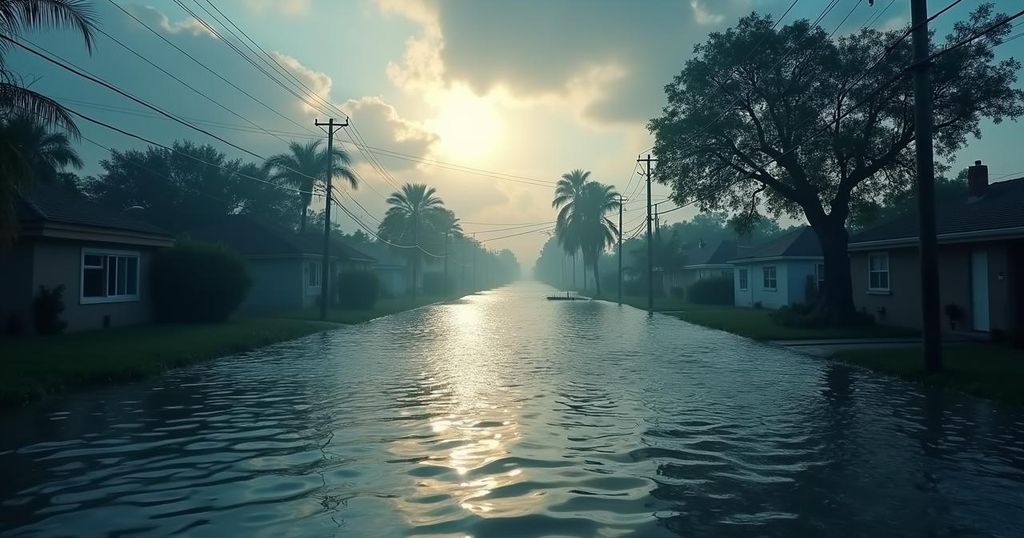FEMA Administrator Attributes Hurricane Helene’s Devastation to Climate Change

FEMA Administrator Deanne Criswell has linked the severe flooding caused by Hurricane Helene to climate change, noting the storm’s rapid intensification due to warm Gulf waters. The hurricane has resulted in at least 88 deaths across various states, with significant damage reported, particularly in North Carolina. The need for effective emergency response and long-term climate solutions is emphasized amidst increasing storm severity.
The head of the Federal Emergency Management Agency (FEMA) has attributed the catastrophic consequences of Hurricane Helene to climate change, which manifested in unprecedented flooding across regions from the Florida coastline to the Appalachian Mountains, resulting in at least 88 fatalities. During an interview on CBS’s “Face the Nation,” FEMA Administrator Deanne Criswell stated that the hurricane developed slowly but intensified rapidly, a phenomenon she linked to the warmer waters in the Gulf of Mexico. Criswell noted that the rising sea temperatures have led to a noticeable increase in the frequency and intensity of major storms. She emphasized, “this storm took a while to develop, but once it did, it developed and intensified very rapidly,” further explaining the consequences of the warmer water: “the greater amounts of storm surge” and “greater amounts of rainfall.” She remarked that the nature of hurricane damage has shifted from predominantly wind-related to increasing water damage, implicating climate change as a contributing factor. Reports indicated significant destruction across Florida, Georgia, South Carolina, North Carolina, and Tennessee, with specific mention of “historic flooding” in western North Carolina. Buncombe County Sheriff Quentin Miller reported 30 fatalities linked to the storm in his jurisdiction. North Carolina Governor Roy Cooper warned the possibility of discovering more casualties as emergency officials access obstructed areas. Cooper also advocated for public safety by advising residents to avoid traveling through affected regions, facilitating the movement of essential emergency services.
Hurricane Helene represents one of the significant weather events attributed to climate change, highlighting the trend of more severe and destructive storms affecting coastal and inland areas. The link between rising ocean temperatures and enhanced storm intensification has been acknowledged by meteorologists and climate scientists. Events such as Helene emphasize the evolving nature of natural disasters, where not only wind damage but also extensive flooding becomes a primary concern for affected communities. The aftermath of such storms necessitates a coordinated response from disaster management agencies, as communities strive to recover from the extensive damage sustained during such events. The implications of climate change on natural disasters are increasingly under scrutiny, prompting discussions about preparedness and resource allocation in the face of future storms.
In conclusion, the recent devastation wrought by Hurricane Helene has underscored the critical impact of climate change on storm intensity and flooding patterns. With a rising death toll and significant damage reported across several states, the insights from FEMA Administrator Deanne Criswell highlight the urgent need for addressing environmental factors contributing to such extreme weather phenomena. The situation calls for immediate and sustained emergency response efforts, as well as long-term strategies to mitigate the impacts of climate change on natural disasters.
Original Source: www.ibtimes.com








